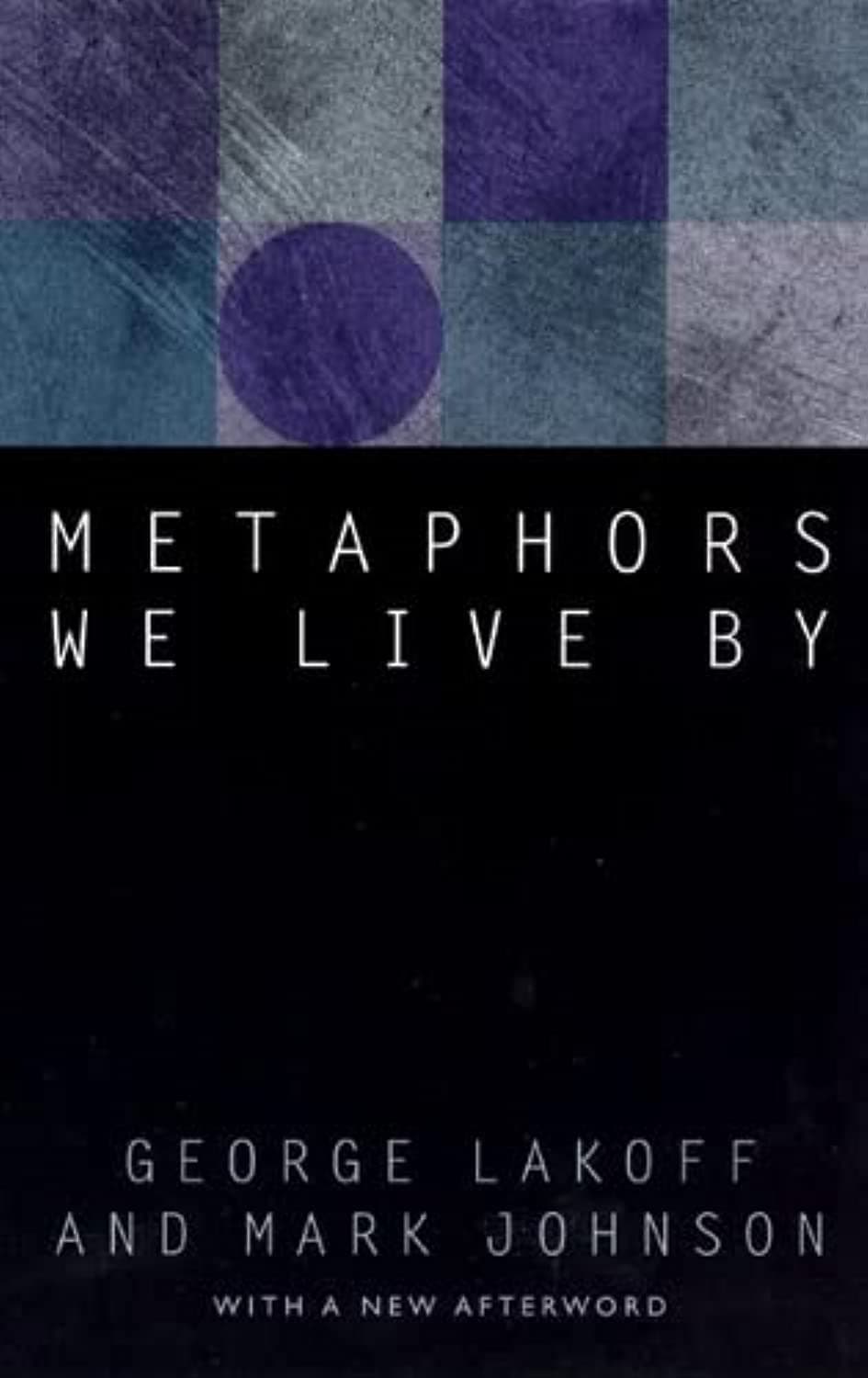
Metaphors We Live By
By: George Lakoff and Mark Johnson
Category: Philosophy
Finished:
Highlights
Corresponding to the fact that we act as if time is a valuable commodity-a limited resource, even money-we conceive of time that way. Thus we understand and experience time as the kind of thing that can be spent, wasted, budgeted, invested wisely or poorly, saved, or squandered.00 adi sobiano TIME IS MONEY, (Page 8)
Orientational metaphors give a concept a spatial orientation; for example, HAPPY IS UP. The fact that the concept HAPPY is oriented UP leads to English expressions like "I'm feeling up today.' (Page 14)
More is better" is coherent with MORE IS UP and GOOD IS UP. "Less is better" is not coherent with them. (Page 22)
New metaphors have the power to create a new reality. This can begin to happen when we start to comprehend our experience in terms of a metaphor, and it becomes a deeper reality when we begin to act in terms of it. If a new metaphor enters the conceptual system that we base our actions on, it will alter that conceptual system and the perceptions and actions that the system gives rise to. Much of cultural change arises from the introduction of new metaphorical concepts and the loss of old ones. For example, the Westernization of cultures throughout the world is partly a matter of introducing the TIME IS MONEY metaphor into those cultures (Page 145)
According to the experientialist myth, scientific knowledge is still possible. But giving up the claim to absolute truth could make scientific practice more responsible, since there would be a general awareness that a scientific theory may hide as much as it highlights. (Page 227)
The experientialist approach to the process of selfunderstanding involves:Developing an awareness of the metaphors we live by and an awareness of where they enter into our everyday lives and where they do not Having experiences that can form the basis of alternative metaphors Developing an "experiential flexibility"Engaging in an unending process of viewing your life through new alternative metaphors (Page 233)
The metaphors we live by, whether cultural or personal, are partially preserved in ritual.Cultural metaphors, and the values entailed by them, are propagated by ritual.Ritual forms an indispensable part of the experiential basis for our cultural metaphorical systems. There can be no culture without ritual. (Page 234)

